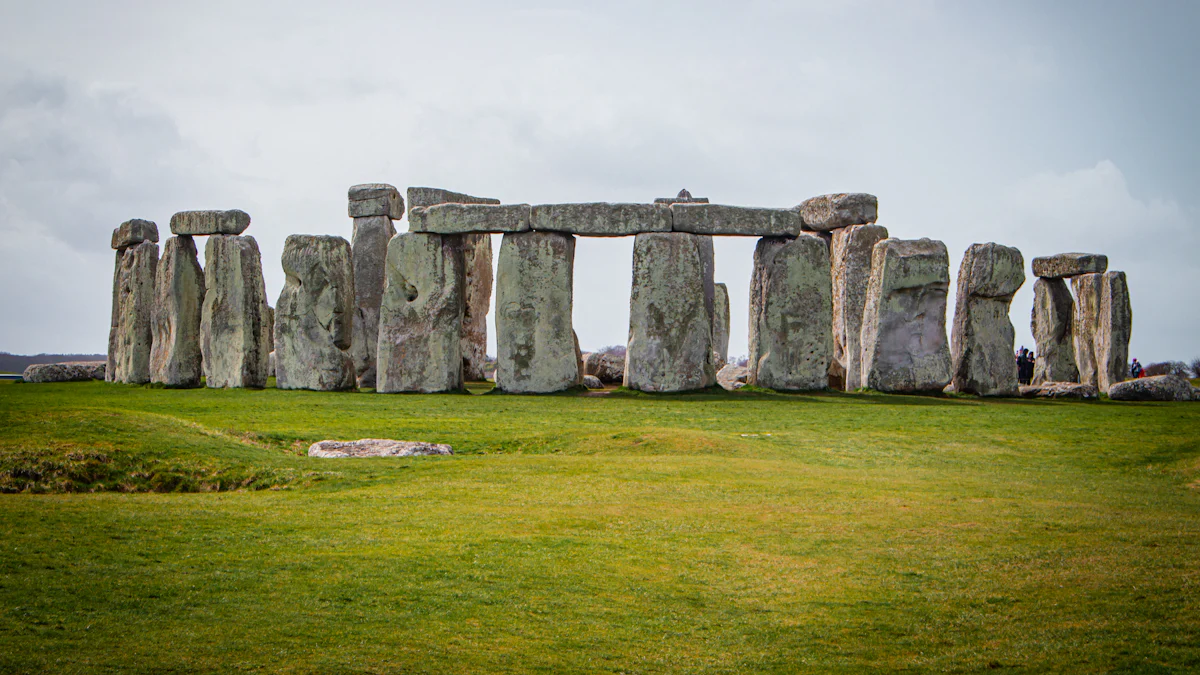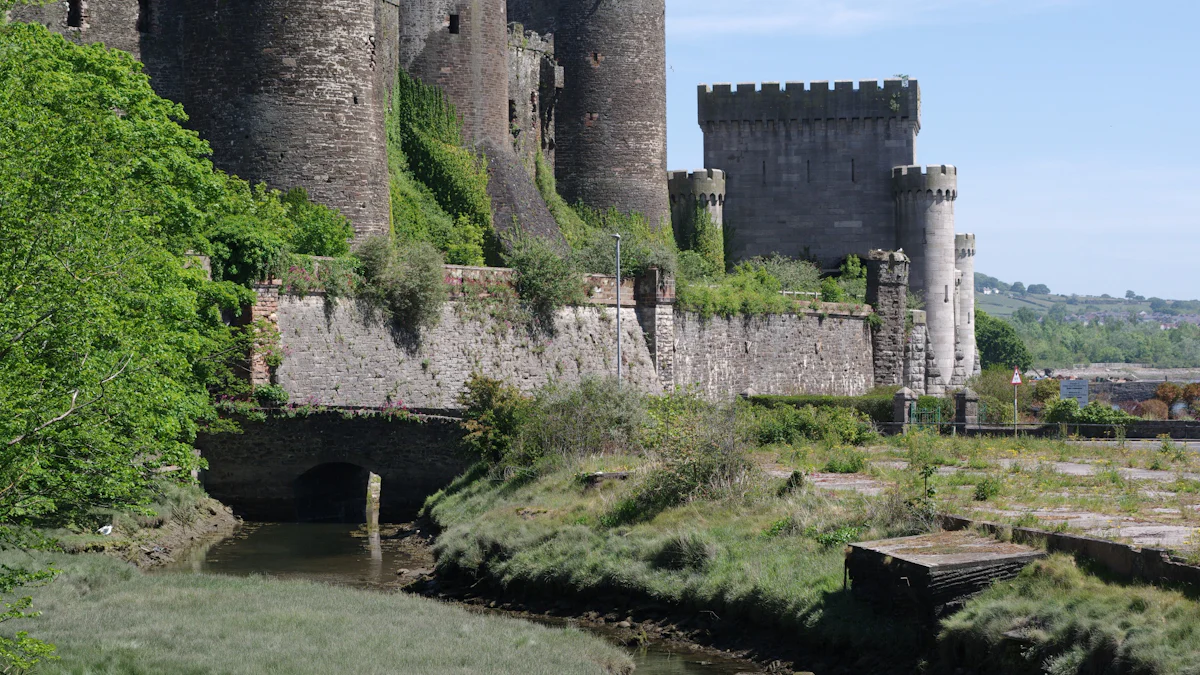History of Britain and Ireland: The Definitive Visual Guide

The history of Britain and Ireland reveals a rich tapestry of political, cultural, and military events that have shaped the region. Understanding these events enhances our comprehension of how the British Isles have evolved over time. The British Isles, consisting of Great Britain and Northern Ireland, have undergone significant transformations. The interactions between Britain and Ireland have been crucial in shaping the identity of the region. The Anglo-Irish War was a pivotal moment in Irish history. The Kingdom of Ireland underwent profound changes under British rule. Northern Ireland gained momentum during this period. The Irish president often reflects on these historical connections. British prime ministers have navigated complex relations with Ireland. The European Union has influenced modern dynamics. Visual insights into these historical narratives are provided by Getty Images.
Early Rule and Settlement

Prehistoric Britain and Ireland
Stone Age Cultures
The Stone Age marked the beginning of human settlement in Britain and Ireland. Early inhabitants crafted tools from stone, creating artifacts like mace heads and bone pins. Megalithic tombs emerged as significant structures, reflecting the cultural practices of these ancient societies. Pottery, including Beaker Ware, became prevalent, indicating advancements in daily life. The introduction of metalworking knowledge laid the groundwork for future developments.
Bronze Age Developments
The Bronze Age brought transformative changes to the British Isles. People began crafting weapons such as swords and axes. Metalwork flourished with the importation of tin from Cornwall. Gold jewelry and horn-shaped trumpets showcased the artistic skills of the era. The period also saw the creation of ceremonial enclosures, highlighting the evolving social structures within the communities.
Roman Influence
Roman Conquest
The Roman conquest of Britain began in 43 AD under Emperor Claudius. The Romans established control over much of the region, introducing new infrastructure and governance. Roads, forts, and towns transformed the landscape. The Roman military presence influenced local societies and economies, integrating Britain into the wider Roman Empire.
Roman Legacy
The Roman legacy in Britain and Ireland left a lasting impact. Architectural innovations, such as aqueducts and baths, became part of the urban fabric. The introduction of Roman law and administration reshaped governance. Roman culture influenced art and religion, leaving an indelible mark on the history of the British Isles. The Roman withdrawal in the early 5th Century led to a period of transition and change.
Medieval Period
Anglo-Saxon and Viking Invasions
Anglo-Saxon Kingdoms
The Anglo-Saxon period marked a significant era in the HISTORY of Britain and Ireland. Germanic tribes, including the Angles, Saxons, and Jutes, established settlements across the region. These tribes formed several kingdoms, such as Wessex, Mercia, and Northumbria. Each kingdom had its own ruler, often referred to as a king, who governed the land and people. The Anglo-Saxon kingdoms played a crucial role in shaping the political landscape of Britain. The influence of these kingdoms extended to Northern Ireland, where Anglo-Irish relations began to take shape.
Viking Settlements
The Viking invasions introduced a new chapter in the HISTORY of Britain and Ireland. Norse warriors from Scandinavia launched raids on coastal areas, seeking wealth and resources. Vikings established settlements in various parts of the British Isles, including England and Ireland. The discovery of Viking artifacts in places like Wexford, Ireland, provides evidence of their presence. Items such as leatherwork, pottery, and bones reveal insights into Viking life. The burial site at Woodstown, Ireland, unearthed a Viking warrior's grave with a sword, spearhead, and ringed pin. These findings highlight the cultural exchange between Vikings and the local populations.
Viking hoards buried in England during this period reflect the wealth accumulated by these seafaring warriors. The impact of Viking settlements extended beyond material culture. The Norsemen influenced the social and political structures of the regions they occupied. The legacy of the Viking Age remains evident in the place names and cultural traditions of Northern Ireland and the rest of the British Isles.
Norman Conquest
Battle of Hastings
The Norman Conquest of 1066 marked a turning point in the HISTORY of Britain. The Battle of Hastings saw William the Conqueror defeat King Harold II, establishing Norman rule over England. This victory led to significant changes in governance and society. The Normans introduced a centralized system of administration, replacing the existing Anglo-Saxon structures. The conquest also affected Ireland, where Norman influence began to spread.
Feudal System
The Normans implemented the feudal system, reshaping the social hierarchy in Britain and Ireland. Land ownership became the basis of power, with lords granting land to vassals in exchange for military service. This system created a network of allegiances and obligations that defined medieval society. The feudal system extended to Northern Ireland, where Anglo-Irish relations evolved under Norman rule. The introduction of castles and fortified structures symbolized the consolidation of Norman authority.
The Norman Conquest had a lasting impact on the cultural and political landscape of the British Isles. The integration of Norman customs and practices influenced the development of the region. The legacy of the Normans can still be seen in the architecture and legal systems of Britain and Ireland today.
England Annexes Wales and Scotland

England and Scotland Form Union
Fails to Conquer Scotland
The British attempts to conquer the northern Kingdom of Scotland faced significant challenges. King Henry VIII sought control, but the rugged terrain and fierce resistance hindered progress. The Scottish Independence movement gained momentum, leading to a series of conflicts. King James VI of Scotland became King of England, uniting the crowns but not the nations. The Anglo-Irish War further complicated relations, as Scotland maintained its distinct identity.
Scotland Form Union
England and Scotland united through the Acts of Union in 1707. This legal framework created the Kingdom of Great Britain. The Union aimed to strengthen political and economic ties. King James played a crucial role in facilitating this agreement. The Union marked a new era of cooperation, though Scottish Independence sentiments persisted.
Great Britain Forms Union
England Annexes Wales
England Annexes Wales in the 16th Century. King Henry VIII enacted laws to integrate Wales into the British legal system. The annexation brought administrative changes and cultural assimilation. Wales became part of the Great British landscape, contributing to the United Kingdom's diversity.
Forms Union with Ireland
The Great Britain Forms Union with Ireland in 1801. The Act of Union created the United Kingdom of Great Britain and Ireland. Irish representation in the British Parliament increased, yet tensions remained. The Irish Free State emerged later, reflecting ongoing struggles for autonomy. The Irish Republic eventually formed, while Northern Ireland reaffirmed its connection to the United Kingdom. The Anglo-Irish relationship evolved, influenced by historical ties and modern dynamics.
The European Union played a role in shaping contemporary relations. Getty ImagesThe United Kingdom continues to navigate these complex histories. Getty provides visual insights into these transformative events. The British prime ministers and the Irish President reflect on these legacies. Getty ImagesImage caption captures the essence of this shared past.
Nationalist Movements and Conflicts
Tudor and Stuart Eras
Reformation Impact
The Reformation dramatically altered the religious landscape of Britain and Ireland. King Henry VIII initiated the English Reformation, breaking away from the Catholic Church. This shift led to the establishment of the Church of England. The Reformation created deep religious divisions in Ireland. Many Irish people remained loyal to Catholicism, leading to tensions with the Protestant English rulers. These tensions fueled conflicts and rebellions throughout the British Isles.
English Civil War
The English Civil War erupted in the mid-17th Century. This conflict pitted Royalists against Parliamentarians. The war had profound effects on Ireland and Scotland. The struggle for power in England influenced political dynamics across the Kingdom. In Ireland, the war intensified existing divisions. The conflict led to significant bloodshed and upheaval in Northern Ireland. The war's outcome reshaped the governance of Great Britain and Ireland.
Irish Rebellions
1798 Rebellion
The 1798 Rebellion marked a pivotal moment in Irish history. The United Irishmen, inspired by the American and French revolutions, sought to unite Irish people of all faiths. Their goal was to create an Irish Republic. The rebellion aimed to eliminate British rule in Ireland. The uprising shattered existing relationships within the region. Ancient fears and memories of past conflicts resurfaced. The rebellion's failure led to the Act of Union in 1801, which integrated Ireland into the United Kingdom.
Home Rule Movement
The Home Rule Movement emerged in the late 19th Century. Irish nationalists demanded self-governance within the United Kingdom. The movement gained momentum, reflecting growing discontent with British rule. The quest for Home Rule highlighted the complex Anglo-Irish relations. The movement faced opposition from Unionists in Northern Ireland. These tensions contributed to the eventual partition of Ireland. The struggle for autonomy continued to shape the political landscape.
The legacy of these nationalist movements remains evident today. The Anglo-Irish War and subsequent agreements reflect ongoing efforts to reconcile historical conflicts. The European Union has played a role in modern dynamics between Britain and Ireland. Visual insights from Getty provide a deeper understanding of these transformative events. The British prime ministers and Irish leaders continue to navigate this shared history.
Political Reconciliation and Modern Era
20th Century Developments
Partition of Ireland
The partition of Ireland in 1921 marked a significant turning point in the HISTORY of the British Isles. The Government of Ireland Act led to the creation of Northern Ireland as a separate entity within the United Kingdom. This division aimed to address the conflicting aspirations of the predominantly Protestant Unionists and the largely Catholic Nationalists. The partition resulted in the establishment of two distinct political entities: Northern Ireland and the Irish Free State. The Anglo-Irish War had intensified the demand for autonomy, leading to this historic separation. The partition left deep scars on both sides, with ongoing tensions between communities.
Good Friday Agreement
The Good Friday Agreement of 1998 represented a milestone in the peace process for Northern Ireland. This agreement sought to end decades of conflict known as "The Troubles." The British and Irish governments, along with various political parties, negotiated the terms. The agreement established a devolved government for Northern Ireland and addressed issues such as disarmament and civil rights. The European Union played a crucial role in facilitating dialogue and cooperation. The Good Friday Agreement remains a cornerstone of peace and reconciliation efforts in the region.
Contemporary Relations
Brexit Implications
Brexit has significantly impacted the political landscape of the United Kingdom and its relations with Ireland. The decision to leave the European Union raised concerns about the future of the border between Northern Ireland and the Republic of Ireland. The British Chambers of Commerce warned of higher costs for businesses due to Brexit. The Bank of England noted a decrease in economic openness. Discussions about Scottish independence and Irish reunification gained momentum after the Brexit referendum. The implications of Brexit continue to shape the dynamics between Great Britain and Ireland.
Current Political Landscape
The current political landscape in the British Isles reflects a complex interplay of historical legacies and modern challenges. The British prime ministers navigate the intricacies of Anglo-Irish relations. The European Union remains a significant factor in shaping policies and agreements. The possibility of a united Ireland grows more likely, influenced by the failures of Brexit Britain. The political climate in Northern Ireland remains sensitive, with ongoing discussions about identity and governance. Getty Images provides visual insights into these developments, capturing the essence of this shared past.
The historical journey of Britain and Ireland reveals a complex tapestry of political, cultural, and military events. The Anglo-Irish interactions shaped the region's identity. British rule left a lasting impact on Ireland's landscape and culture. The Anglo-Irish War marked a pivotal moment in Irish history. The partition of Ireland created Northern Ireland, leading to ongoing tensions. The European Union influenced modern dynamics. The British prime ministers continue to navigate these intricate relations. Getty ImagesImage caption captures the essence of this shared past, offering visual insights into these transformative events.
See Also
Illustrated History of Ancient Egypt
Visual History of Armored Vehicles: Tanks

